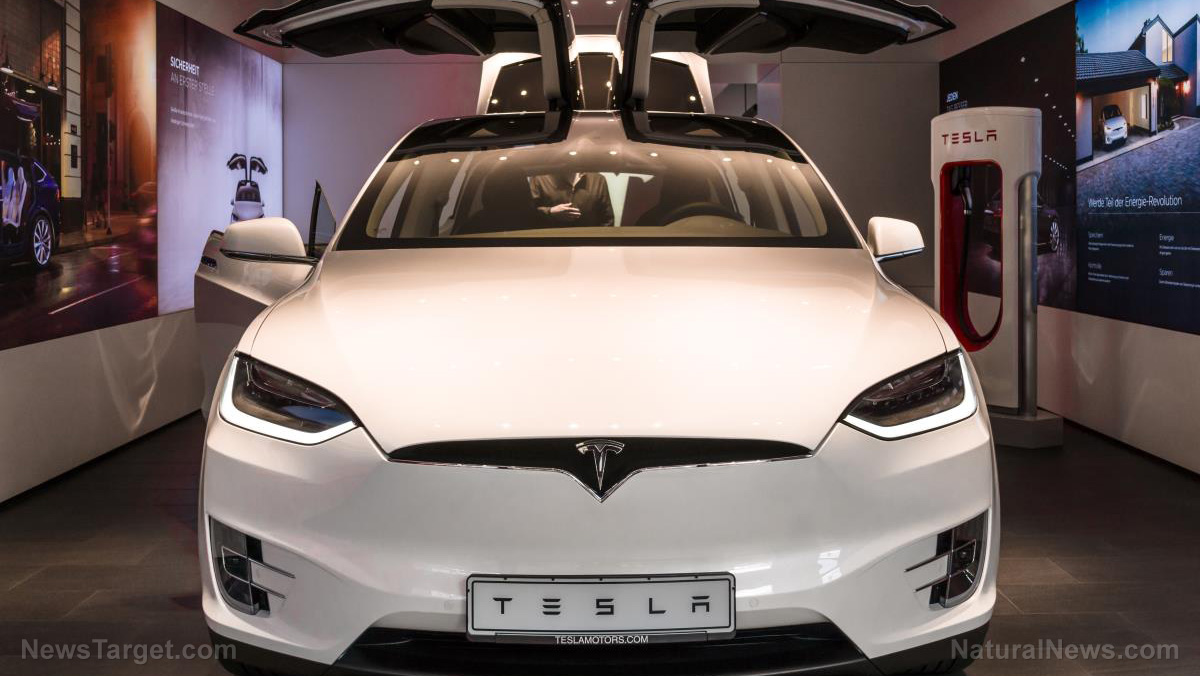BURNING CASH, NOT GAS: Federal, state subsidies for EVs cost $50,000 per car over a 10-year period
11/15/2023 / By Zoey Sky

Governments across the globe have come up with different tax incentives for buyers and manufacturers to bring electric vehicles (EVs) to market. They have also funded the development of the infrastructure needed to charge electric cars.
But according to a think tank, it might not be worth investing in EVs because they might cost more money in the long run. The Texas Public Policy Foundation, a conservative think tank, conducted a study into electric cars to shed some light on the true cost of EVs for the average American taxpayer.
Based on the study, the authors estimated that the average EV incurs hidden costs of at least $48,698 over a 10-year period. Jason Isaac, one of the authors, explained that electric car owners are the beneficiaries of regulatory credits, subsidies and socialized infrastructure costs that amount to at least $50,000 per EV.
Unfortunately, these costs are shouldered by gasoline car owners, taxpayers and utility ratepayers, who are all paying a large price for someone else’s electric car.
The authors found that the average cost of EV subsidies covered by American taxpayers was around $8,984 per car, which is due to a combination of the well-known $7,500 federal tax credit as well as state subsidies.
The report also found that in the U.S., states handed out more than $646 million in taxpayer subsidies to EV buyers in 2021. After dividing by the 435,320 electric cars sold in 2021, the average EV buyer received state credits totaling $1,484.
The report also showed that the infrastructure needed to facilitate EVs in America is not paid for directly by car owners. Those expenses are described as “socialized infrastructure costs.”
The authors also wrote that both home and public charging stations used by electric cars “put a significant strain on the electric grid,” resulting in an average of $11,833 in socialized costs per EV over 10 years, a cost that is shouldered by utility ratepayers and taxpayers. (Related: Electric vehicles in Florida CATCH FIRE after coming into contact with saltwater from Hurricane Idalia.)
They also reported that the gasoline infrastructure is used for other products and society at large, while EV charging costs currently only benefit EV owners.
Additionally, the authors found that the additional strain placed on the power grid when charging electric cars would incur “demand charges” or a premium for higher energy consumption at a certain time.
To date, most utilities are “socializing that cost for EV owners by not assessing demand charges on residential EV chargers,” even though EV chargers sometimes use as much power at certain times as several homes.
Gas car owners shoulder a heavier burden
The report also revealed that the largest cost was often shouldered by buyers of gas cars.
The authors argued that as car manufacturers incur costs to meet federal and state mandates to make more electric cars than they would normally do so, they will then pass those costs on to buyers of their gas cars.
The paper showed that at least 16 states have “zero emission vehicle” (ZEV) mandates, with the state setting a number or percentage of new vehicles sold that must be zero-emission. According to the paper, the cost to meet these mandates is not limited to the states that impose them but also affects the entire fleet of each automaker trying to meet them.
Additionally, federal regulations impose similar obligations on automakers that incentivize them to produce more EVs. The authors explained that the largest source of financial support for electric vehicles doesn’t come from direct subsidies but “from hidden costs driven by federal regulations.”
These regulatory standards are applied on a fleetwide basis and allow for the trading of regulatory credits, but these costs are passed on to buyers of gasoline and diesel vehicles.
According to the Texas Public Policy Foundation paper, the estimated value of those credits was around $27,881 per vehicle.
Brent Bennett, another of the paper’s authors, commented that the Biden administration’s “stringent fuel economy standards and regulatory manipulations” are forcing several American automakers toward bankruptcy and adding thousands of dollars to the cost of all gasoline vehicles.
“Rolling back these subsidies and burdensome regulations would save consumers money,” advised Bennett.
During its third-quarter earnings in 2023, Ford reported that it lost an estimated $36,000 on each EV it sold in the quarter.
Learn more about electric cars and their hidden costs at RoboCars.news.
Watch the video below as a Norwegian shipping company bans electric, hybrid and hydrogen cars from its ferries because of significant safety risks.
This video is from the Tilt channel on Brighteon.com.
More related stories:
Electric vehicles are unreliable and not cost-efficient – especially in cold weather.
Electric vehicles are a SCAM – here’s why.
Sources include:
Submit a correction >>
Tagged Under:
big government, cars, conspiracy, debt collapse, deception, electric cars, electric vehicles, electricity, energy supply, EV, EVs, fuel supply, future tech, green living, Green New Deal, green tyranny, hidden costs, insanity, lies, power, power grid, products, self-driving cars, Taxes, tesla, traitors, transportation, truth
This article may contain statements that reflect the opinion of the author
RECENT NEWS & ARTICLES
COPYRIGHT © 2017 PENSIONS NEWS





















